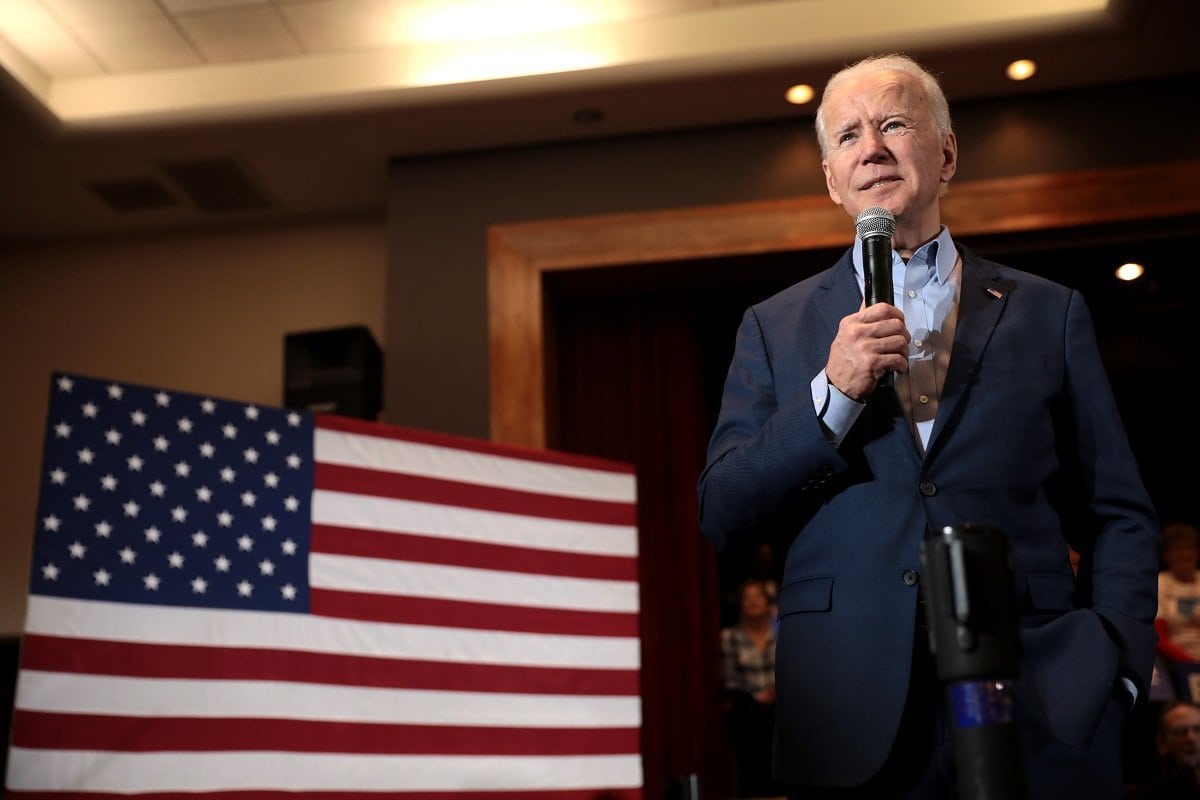Could Iran develop a nuclear weapon on President Biden’s watch? Yes.
While Democrats might blame President Donald Trump’s abrogation of the Joint Comprehensive Plan of Action (JCPOA) for recent Iranian nuclear violations, they should not: The 2015 Iran deal reversed decades of non-proliferation precedent which demanded a complete accounting and dismantlement of nuclear infrastructure. Exculpating Iran due to hatred of Trump also ignores that Iran is treaty-bound to uphold its Non-Proliferation Treaty Safeguards Agreement commitments.
To understand just how close the Islamic Republic is to nuclear weapons, consider the three general components of a nuclear weapons capability: enrichment, warhead design, and delivery. Iran has worked on all three. The International Atomic Energy Agency (IAEA) chronicled Iran’s possible military dimensions in a public report almost a decade ago: Iran had worked on warhead design, detonators, weapon modeling, and procurement. While Biden’s team may say that the JCPOA stopped such activity, Iran’s accounting to the IAEA fell short, the regime sought to hide the archive of its work, and the knowledge already developed does not go away.
The JCPOA and its corollary, UN Security Council Resolution 2231, reversed legal precedent to enable Iranian missile work under the guise of a satellite launch program. While some officials debate Iran’s missile capability, they ignore another reality: While the Pentagon might seek precision and perfection, the Islamic Revolutionary Guard Corps may not. A dirty bomb carried by ship obviates the need for an intercontinental ballistic missile or, for that matter, the perfect warhead.
The JCPOA focused its efforts on Iran’s enrichment program, although it undercut its effectiveness both with expiring provisions and by allowing Iran to maintain an industrial-scale enrichment program greater than that of Pakistan at a time that Pakistan built nuclear weapons. In short, Iran already has the knowledge to build and launch a warhead. All it needs is more enriched uranium.
Even as Iran approaches nuclear weapons capability, Biden continues to be blind to Iran’s own strategy. His national security team mistakenly believes that differences between hardliners and reformers are of belief rather than tactics. They see sincerity rather than a game of good-cop, bad-cop. The reality is that both factions support the theocracy’s revolutionary precepts and collude to disenfranchise tens of millions of Iranians who seek to live in a normal country.
Tehran is confident that they can outplay American diplomacy for other reasons: They are simply following the path already laid by Pyongyang. Consider the 1994 Agreed Framework signed both to keep North Korea within the confines of the Nuclear Nonproliferation Treaty and to stop its development of nuclear weapons. As Iran does now, North Korea maintained a pretense of abiding by its agreement even as it sought to cheat along the margins. Even as it became clear the Agreed Framework was not constraining North Korean ambitions, officials—including Biden himself—bent over backwards to deny its flaws and exculpate North Korean cheating. After the North Korean foreign ministry announced in 1998 that it would no longer abide by the Agreement, for example, the Clinton administration offered Pyongyang $100 million in new aid.
Today, Democrats similarly debate new incentives to bring Tehran back into the fold. As defiance becomes lucrative, it only grows. North Korea subsequently demanded $300 million to allow inspection of an underground nuclear site near Kumchang-ni and $1 billion to stop missile exports. American proponents of diplomacy meanwhile argued that increasingly violent North Korean rhetoric was simply a prelude to its offer of a grand bargain. The reality: North Korean authorities never abandoned their nuclear drive, but saw diplomacy as a way to delay accountability and enrich the regime. Today, North Korea’s nuclear arsenal increasingly threatens the United States and its allies, while its leaders live a luxurious lifestyle funded in part by billions of dollars of wasted American taxpayer money.
Let’s face it: Biden’s team may say they want to re-engage Tehran, but in reality, their diplomacy will simply be a fig leaf to enable Iran, like North Korea before it, to establish a nuclear fait accompli.
Michael Rubin is a senior fellow at the American Enterprise Institute

